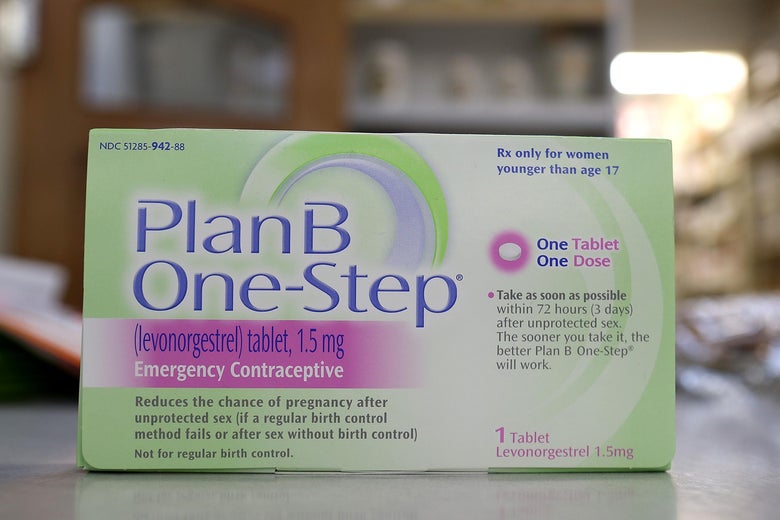What Weight Does Plan B Not Work
Does Plan B Really Not Work for Women Over a Certain Weight?
Preliminary research suggests it might be less effective, but that doesn't mean it's worthless.

It's a scary time in America to be a person with a working uterus. As abortion laws tighten in Georgia and Alabama in the lead-up to what some think is the inevitable overturning of Roe v. Wade, we're naturally hyperconcerned with how to protect ourselves against accidental pregnancy. Indeed, this scary state of affairs has made urgent a yearslong conversation around the morning-after pill: that it might not work for women over about 175 pounds.
You might be either nodding yeah, yeah, of course, or screaming WHAT?! Like other info about birth control, it's passed through something of a whisper network. Plan B failing for women over a certain weight was also recently a plot point on Hulu's Shrill; Aidy Bryant's character gets pregnant in spite of taking it. And now, as it looks like it might be a good idea to stockpile the stuff, warnings that the drug doesn't work for some people are circulating further. This is well-meaning. It could also be wrong.
The idea that Plan B doesn't work for some started with a 2011 study in the journal Contraception, which found that women with BMIs greater than 25 who took levonorgestrel (aka Plan B) became pregnant twice as often compared with those with BMIs less than 25. For women with BMIs greater than 30, the pregnancy rate more than tripled, on par with the expected pregnancy rates if they had not used Plan B. It caused "quite a freakout," as Sarah Jacoby, currently a health editor at Self, explained in an excellent and clarifying piece a few years ago, and in a more recent follow-up.
Some further studies support that finding. A small study shows that heavier folks get less of the drug in their blood, and therefore it's possible that Plan B could fail to halt ovulation as it's supposed to. But other studies on pregnancy rates found that BMI had no effect, as the European Medicines Agency noted in 2014. The EMA ultimately recommends the drug, as the potential benefits of taking it outweigh the harms, no matter your weight. It's true that it might fail sometimes, but it's still worth a shot, a line of reasoning OB-GYNs have also shared with Jacoby and others. Plan B isn't 100 percent effective in anyone and should never be considered fail-proof. Still, what we really need is more research to understand for sure how effectiveness is connected to weight.
In the meantime, less effective—even potentially ineffective—isn't the same as definitely ineffective, as Jacoby lays out. Pamphlets for Plan B should have some kind of indication that it's possible the drug won't work for those with a higher weight, perhaps something along the lines of "the jury is out here, but better to try this than not." It is understandable if maddening that a drug company trying to make money would not want to say this, and the Food and Drug Administration currently does not require an explanation because the "data are conflicting and too limited." (This is somewhat patronizing; women should be let in on the uncertainty.) In lieu of the conflicting research being laid out in clear, readable print, it's good that the caveat is circulating among women, if emblematic of why we're forced to rely on often-faulty tips from each other in the first place. (No wonder it's so easy to trust Goop over a doctor.)
If you're over 175 pounds or have a BMI greater than 25, and sperm factors into your sex life, it is probably smart to factor Plan B's possible lowered effectiveness into your decision-making about contraception, particularly whether to use another form of birth control that might eliminate the need for emergency contraception altogether. You might also consider getting a prescription for Ella, another form of emergency contraception that uses a hormone that performed significantly better in that 2011 trial compared with levonorgestrel, the main component of Plan B. The downsides of this are that it's not available over the counter, as Plan B is (though you can be approved for a prescription online), and it can be more expensive out of pocket. In an ideal world, perhaps there'd be bespoke dosing no matter the drug so people get the right amount for their bodies. Again, more research is sorely needed.
And, as you pass on information, include the nuance. We stand to lose a lot by making the warnings about Plan B unequivocal—people who could still potentially benefit from the drug might chose not to take it, and the options for what else to do are so limited and are narrowing further. We should treat Plan B like a last-ditch solution, but one worth trying nonetheless.
What Weight Does Plan B Not Work
Source: https://slate.com/technology/2019/05/plan-b-weight-effectiveness-abortion-restrictions-evidence.html
0 Response to "What Weight Does Plan B Not Work"
Post a Comment